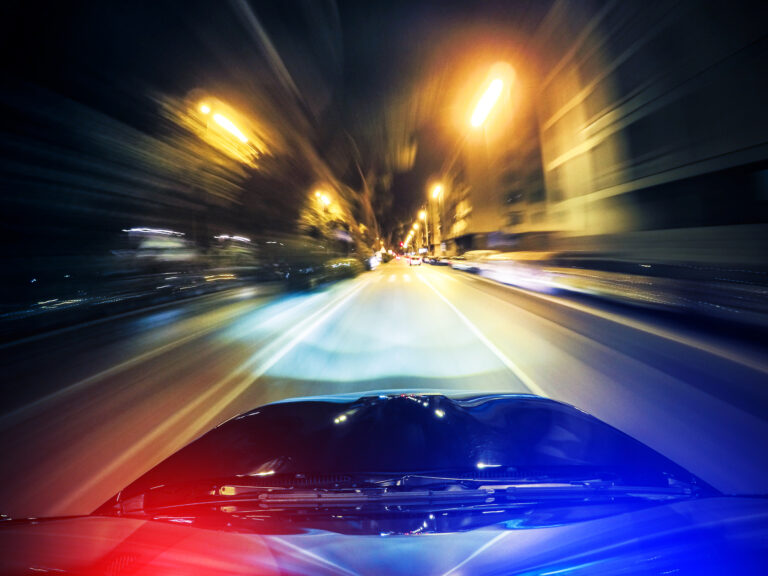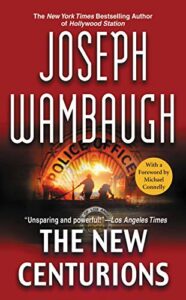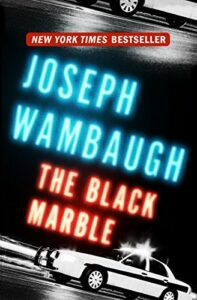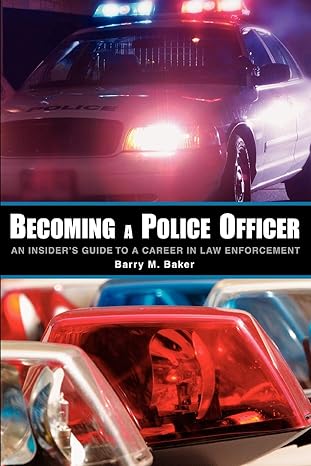
...television is an excellent training tool for the development of your investigative abilities. From the news to entertainment and right on through the commercials, the messages and clues are everywhere.
~ Barry M. Baker Tweet

Detective Lieutenant Barry M. Baker (ret.) is a 32 year veteran of the Baltimore Police Department.
Police shows have been bedrock entertainment for decades, and social media further depicts police officers both positively and negatively. There’s no question that television has tremendous influence on American society. In the beginning, television took its lead from the culture, but now the culture takes its lead from television. Make no mistake, aside from public education; television is the most effective tool for the dissemination of propaganda ever devised by man.
For a person considering a police career, television is an excellent training tool for the development of your investigative abilities. From the news to entertainment (ad) and right on through the commercials, the messages and clues are everywhere. Some are obvious and others subliminal. Obviously, the subliminal political and societal messages are the ones you want to detect and analyze.
When you become a police officer, you’ll learn that people rarely tell the truth and nothing but the truth. Sometimes peoples’ versions of the truth exist in their interpretation of events, or they simply lie. Events depicted on television follow the same path.
Police Shows have A Lot of Realism... but not really
You’ll learn that everybody knows your job better than you, and why shouldn’t they? Everybody watches television. Producers of police shows make efforts to add realism, and they add degrees of accuracy in the way they portray certain aspects of police work. Television dramas have educated everyone about search warrants… well, sort of.
The detectives are busy following leads, so the lieutenant or the prosecutor says to them, “You go ahead, I’ll get the warrant,” or “I’ll call in the warrant.” In reality, if you’d wait for your lieutenant or prosecutor to get you a warrant, you’d be waiting until the day you retire.
To be fair, it would be pretty boring television if you had to watch the detective spend an hour preparing a statement of probable cause for the warrant and another hour or two tracking down a judge to sign the search warrant.
There’s the all familiar Miranda Warnings… “You have the right to remain silent.” There’s no need to give a verbal Miranda Warning when you arrest a suspect, because Miranda given verbally is very weak when it comes to trial. That’s why you’ll have a Miranda form signed by your suspect with his or her initials after each warning.
Inaccuracies and shortcuts are just part of any script for television, and as long as inaccuracy is used to enhance the pace to improve entertainment value, it’s no big deal.
Police Shows and The CSI Phenomenon
Science and technology is advancing at lightning speed, so it’s no surprise that police shows take advantage of these advances. They enhance the story plot lines and aesthetics. It wasn’t that long ago when police shows got by with the inference of death and suffering without depicting bloodied and broken bodies. It’s now common to watch blood gushing and splattering, and the doctors slice and dice realistic looking cadavers on the autopsy tables.
The special effects are incredibly realistic, but the science associated with police shows will impact your police career. The police shows that use science to examine physical evidence creates a whole new way people look at police and crime solving.
Imagine a jury deliberating one of your cases. The case is pretty straight forward. You apprehended an armed robber moments after he robbed a man at a bus stop. You observed the suspect running away from the bus stop, and you caught up to him two blocks away. The suspect surrenders the gun he used to threaten the victim, and you find the victim’s wallet and iphone in the suspect’s coat pocket.
It only takes One Juror
Along with the victim’s positive identification of the suspect, your case is complete. However, one of the jurors isn’t satisfied with the absence of scientific evidence presented at trial. The juror points out that the suspect allegedly grabbed the victim by the arm during the robbery. He goes on to explain that the victim’s coat was never collected as evidence, so the sleeve of the coat was never DNA tested for epithelial from the suspect.
I’m always amazed by the amount of time and resources available to the TV cops. But, it’s television! While a science can provide critical pieces of evidence in a crime, it’s not always required to establish guilt beyond a reasonable doubt. The possible presence of epithelial on the victim’s coat would have only been a small, but expensive, addition to the overwhelming evidence.
Prosecutors and police officers are frequently impacted negatively by the routine of expensive science depicted in police shows. You’ll be confronted with all the real obstacles that TV writers have the luxury to ignore or manipulate.
Police Shows Can Be Educational
Police shows aren’t the best sources for police procedural behavior, but they frequently illustrate the wrong way of doing things. This observation is not meant to be criticism. When it comes to entertainment, watching TV cops doing everything the right way would be pretty boring. While enjoying the humor in the screw-ups, you should realize the realism associated with the screw-ups
I was watching an episode of the The Closer starring Kyra Sedwick. The show opens with Lieutenant Provenza (C.W. Bailey) conducting a murder for hire sting on a female suspect. Lieutenant Provenza and Lieutenant Flynn (Tony Denison) are transporting the suspect and the evidence back to Los Angeles.
They stop at a roadside restaurant for lunch, and Provenza makes certain the evidence, i.e. video tape of the sting; money, etc., is secured in the car’s trunk. Provenza even breaks out the steering wheel club as Lieutenant Flynn teases Provenza for his paranoia.
The Suspect has the View
Inside the restaurant, the two detectives choose a table in front of a large window directly overlooking their car. The entertainment part of this wouldn’t work if the detectives had been seated to maintain constant observation of the car. The two detectives are seated with their backs to the window. The suspect, who up to this point had not exhibited much intelligence, begins questioning the detectives about the importance of the evidence against her.
The suspect is watching two car thieves break into the unmarked police car and drive away. It was pretty easy to see what was coming, but the actors’ performances made for a very funny and entertaining scene. I laughed and nodded as I thought about the realism the scene really portrayed.
Evidence Chain of Custody
You’re going to receive instruction about the absolute importance of evidence chain of custody. Whenever the chain of custody is broken, the admissibility of the evidence, assuming it’s recovered, will be in serious jeopardy. If the evidence is susceptible to loss or alteration, the admissibility of that evidence will be denied.
Okay, let’s look at the real world of police and police behavior outside police shows. I guarantee that you’ll work with a police officer who rarely turns off the engine of his or her police car. If the officer stops at a convenience store in cold weather, the officer will let the engine run to keep the heater running.
In warm weather the air conditioner will apply. When weather doesn’t apply, the engine will still run, because the officer is lazy. Worse, the officer is naïve in the belief that people won’t steal police cars. That officer’s behavior wouldn’t be any different if the trunk was packed with evidence.
Police Shows and Breaking the Rules
Some police officers will spend a lot of time trying to work around rules or ignoring rules all together. The vast majority of police officers will do their best to work within the rules, but there will be exceptions.
The first exception are lazy and incompetent people who would underperform in any line of work. The second group is anything but lazy. Their idea of competence is predicated on circumstances, or rules they believe to be worthy of their time and attention. Taken to the extreme, this group typifies the statement, “The end justifies the means.”
Police shows frequently embrace the theme of the crusading “rules be damned” cop, and the crusader cop sneers at rules while he or she pursues truth and justice. In movie land, the insubordination and carnage left in the wake of Super Cop fades away from scene to scene, and in the end justice prevails and Super Cop is vindicated.
The Real World of Super Cop
In the real world of police work, the super cop who routinely ignores rules has a shelf life, and the length of that shelf life will vary due to a lot of factors including just being lucky. The tolerance for Super Cop’s insubordination will be limited, and carnage resulting from the insubordination will be a career killer.
You’re definitely going to work with a few of these super cops. You’ll be disappointed when you realize that your super cops aren’t as sincere as versions portrayed in police shows. The pursuit of truth and justice will be secondary to their pursuit of recognition.
Everybody likes recognition from time to time, but Super Cop’s need for recognition can be described as an addiction. Addiction to recognition is dangerous, because the nature of recognition is fleeting, and it requires constant feeding. When a police officer becomes a recognition junkie, that officer’s career will be in jeopardy.
Police Shows with Less Destruction Equals More Realism
Have you noticed one difference between made for television police shows and movies? The level of violence and property destruction tends to be less in the television programming compared to the big budget movies. Of course, money is the main factor. The cop movies rely on action to drive entertainment, and the television genre relies more on plot and multiple characters.
The absence of gratuitous violence and destruction in the television police shows provides more realism to the programming. How often do you see a police car being abused in a television police show? Sure, there’s always the scene where two detectives approach a suspect, and the suspect runs. The young detective chases the suspect on foot, and the older detective uses the car to cut off the suspect. The police car comes to a stop as the suspect crashes into the car’s fender.
You will, however, work with police officers who have evidently watched a lot more movies than television police shows. Those movies make it to television, and the violence and property destruction does have its negative effects. You’ll be amazed how some police officers get caught up in the action of their own circumstances, and they lose sight of end results.
Drive Your Police Car onto a Golf Course and See what Happens
The example I love to use is the golf course. If you drive onto a golf course pursuing a suspect, you are going to be in so much trouble. In a matter of minutes, you could cause tens of thousands of dollars in damage to a golf course.
There’s only one scenario where I could see you justify driving your police car onto a golf course: You receive a call, and this is important. By receiving a call, you have not initiated the action.
This is the information your given. A vehicle is on the golf course driving over fairways and greens, and the driver is attempting to strike golfers. You drive onto the course, and you promptly crash your car into the suspect disabling the suspect’s vehicle.
In this scenario, you’ll probably be commended for your quick and decisive action. You’ve protected lives and tens if not hundreds of thousands of dollars in property damage.
If this scene was portrayed in a police show, you wouldn’t see all the construction equipment setting on the sidelines. That equipment would be there for the demolition of the golf course to make way for a housing development.
Police Shows and Hi-Tech Information
When you watch police shows, you should be impressed by the incredibly advanced information technology on display. There isn’t any database that cannot be accessed for the most up to date information required to drive the plot.
Information technology is on the march with no end in sight, but knowing how to purpose that technology for police work is an entirely different matter. You’re going to be disappointed when you see the limited uses for which information technology will be available to you. You see, those incredible displays of information technology in police shows are mostly special effects.
Expensive and Capable
There are police departments all over the country that have very expensive and capable information technology systems. If you join a police department that brags about its advanced information technology, it may be a fact. The part that isn’t disclosed is that the department is utilizing only a fraction of the technology’s potential.
Edward Snowden exposed uses of information technology being employed by the National Security Agency. The media did little more than expose its ignorance of information technology. The media complained about Snowden’s lack of a college degree, and the issuance of security clearances to private contractors. Who do the media believe creates all of the increasingly amazing technology?
Police Shows and Compassionate Cops
A recurring theme in police shows is the compassion shown by police officers toward victims and others.There’s nothing wrong with a police officer showing compassion or having empathy with others as long as it’s not overdone.
When it comes to television, it’s usually overdone. In reality, a police officer has to guard against becoming too intimate with other peoples’ problems. For example, in a police show, a detective takes a teenager home to avoiding placing the kid into an overcrowded juvenile facility. If you were to do something similar, you could find yourself under investigation or even indicted.
Other Problems
The television cops have plenty of problems of their own that affect their on duty behavior. When this occurs, other police officers and supervisors go out of their way to accommodate the officer. Again, there’s reality. It’s not like it used to be. Current political correctness has made it very difficult to informally address personal problem issues within the workplace.
Some police officers believe you should be accepting of their personal problems even if they negatively affect your work performance. There’s not much you can do to change their attitudes, and you should concentrate on not becoming one of those officers.
Police Shows and Workplace Relationships
Police shows often include romantic relationships on the job. This isn’t unusual in any profession or occupation, and it’s been happening forever. However, in today’s environment, the romantic involvement between two police officers could easily cause problems. A third police officer could file a sexual harassment complaint alleging a hostile work environment.
Police work is unique. For example, two romantically involved police officers working in the same squad could cause one or the other to act irrationally. An officer who worked in my district carried a second radio to monitor the adjoining district, so he could respond to calls assigned to his romantic interest.
Romantic relationships used to be of little or no interest to the police organization, but things change. You’ll probably be required to report such a relationship to your supervisor, and your failure to report could result in disciplinary action up to and including termination of your employment.
If you should find yourself in a romantic relationship with a coworker, just follow the rules that are in place. Most importantly, keep any issues involving the relationship at home and out of the workplace.
Related Content for Police Shows
Advertisements






